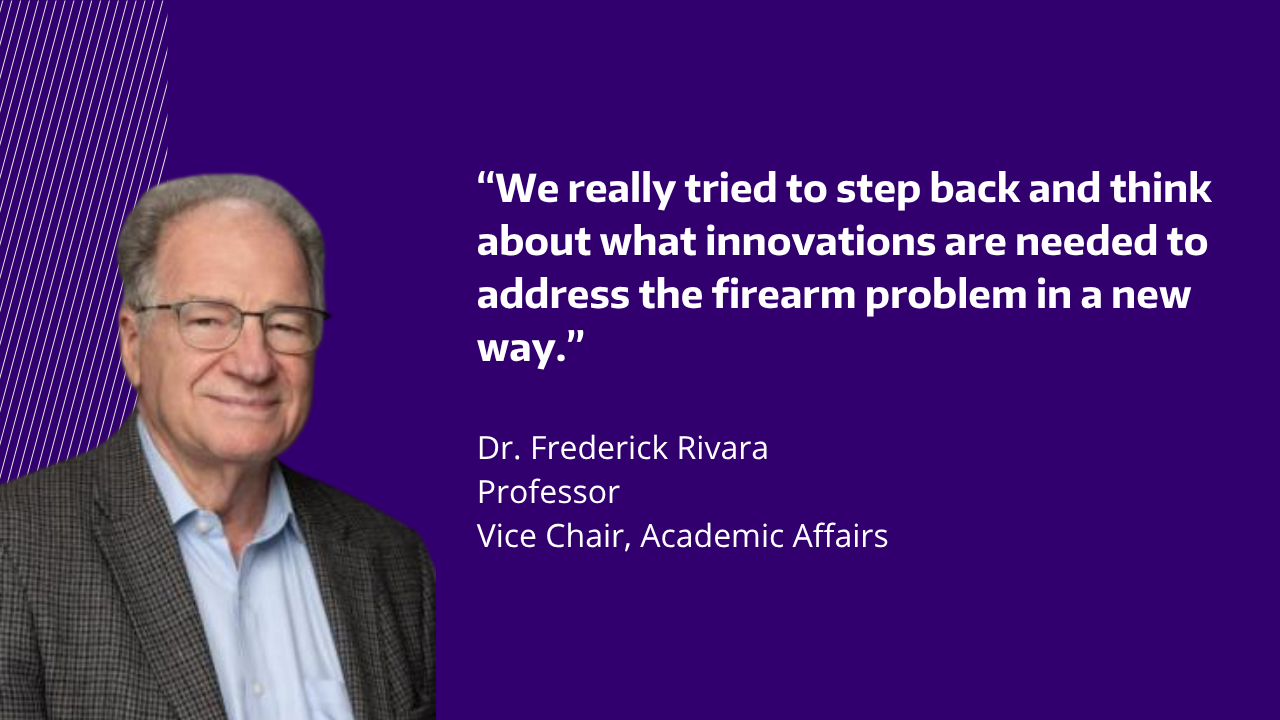
A new report chaired by Dr. Frederick P. Rivara, professor of pediatrics, outlines a national strategy to substantially reduce firearm related injuries and deaths by 2040. Firearm violence remains a critical pediatric health issue with profound effects on children, adolescents, and families. Pediatric clinicians witness these impacts every day, and the report underscores their essential role in prevention through clinical care, community partnership, research, and advocacy.
The report also includes contributions from Drs. Ali Rowhani-Rahbar, professor of epidemiology and pediatrics and director of the Firearm Injury & Policy Research Program, and Dimitri A. Christakis, professor of pediatrics. Their leadership reflects UW’s commitment to advancing evidence-based approaches that protect children, families, and communities.
The roadmap emerged from a JAMA convened two-day summit that brought together more than 60 experts across public health, criminology, sociology, social work, and public policy. Their goal was to identify innovative, realistic ways to reduce firearm violence while acknowledging the social and legal complexities surrounding firearm ownership in the United States.
The roadmap calls for a balanced strategy that pairs emerging technologies, such as AI tools designed to detect concealed weapons, with upstream investments addressing root causes like housing instability, community disinvestment, and limited economic opportunity. It also highlights legally viable measures including background checks, safe-storage requirements, and programs that support high-risk individuals through housing, job training, financial assistance, and therapeutic services.
The 2040 roadmap promotes a balanced strategy that incorporates technology, social support, and effective policies to guide national efforts in reducing firearm-related harm through targeted approaches.
Learn more by reading the full article here.